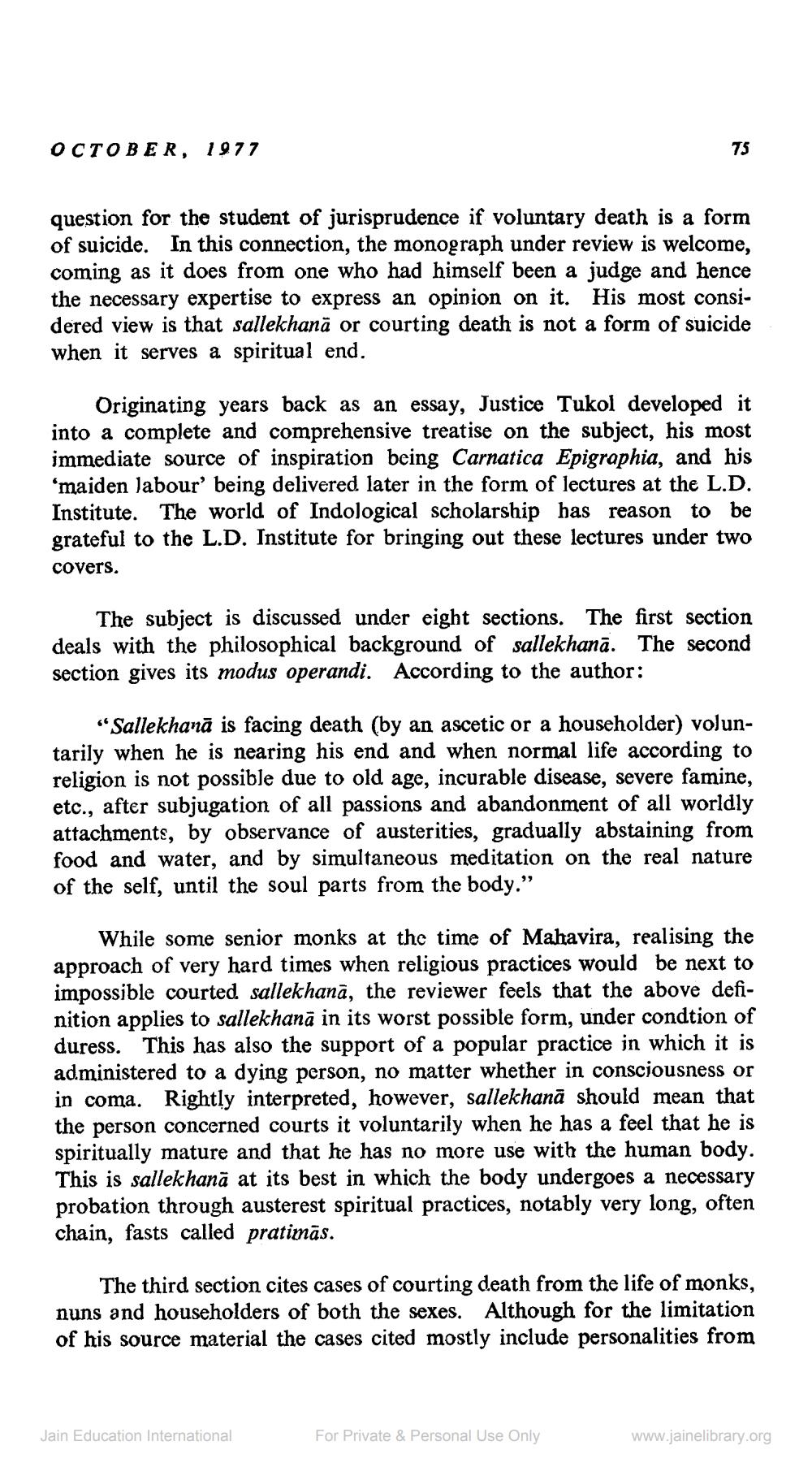Book Title: Jain Journal 1977 10 Author(s): Jain Bhawan Publication Publisher: Jain Bhawan Publication View full book textPage 5
________________ OCTOBER, 1977 question for the student of jurisprudence if voluntary death is a form of suicide. In this connection, the monograph under review is welcome, coming as it does from one who had himself been a judge and hence the necessary expertise to express an opinion on it. His most considered view is that sallekhana or courting death is not a form of suicide when it serves a spiritual end. 75 Originating years back as an essay, Justice Tukol developed it into a complete and comprehensive treatise on the subject, his most immediate source of inspiration being Carnatica Epigraphia, and his 'maiden labour' being delivered later in the form of lectures at the L.D. Institute. The world of Indological scholarship has reason to be grateful to the L.D. Institute for bringing out these lectures under two covers. The subject is discussed under eight sections. The first section deals with the philosophical background of sallekhana. The second section gives its modus operandi. According to the author: "Sallekhanā is facing death (by an ascetic or a householder) voluntarily when he is nearing his end and when normal life according to religion is not possible due to old age, incurable disease, severe famine, etc., after subjugation of all passions and abandonment of all worldly attachments, by observance of austerities, gradually abstaining from food and water, and by simultaneous meditation on the real nature of the self, until the soul parts from the body." While some senior monks at the time of Mahavira, realising the approach of very hard times when religious practices would be next to impossible courted sallekhana, the reviewer feels that the above definition applies to sallekhanā in its worst possible form, under condtion of duress. This has also the support of a popular practice in which it is administered to a dying person, no matter whether in consciousness or in coma. Rightly interpreted, however, sallekhana should mean that the person concerned courts it voluntarily when he has a feel that he is spiritually mature and that he has no more use with the human body. This is sallekhanā at its best in which the body undergoes a necessary probation through austerest spiritual practices, notably very long, often chain, fasts called pratimās. The third section cites cases of courting death from the life of monks, nuns and householders of both the sexes. Although for the limitation of his source material the cases cited mostly include personalities from Jain Education International For Private & Personal Use Only www.jainelibrary.orgPage Navigation
1 ... 3 4 5 6 7 8 9 10 11 12 13 14 15 16 17 18 19 20 21 22 23 24 25 26 27 28 29 30 31 32 33 34 35 36 37 38 39
